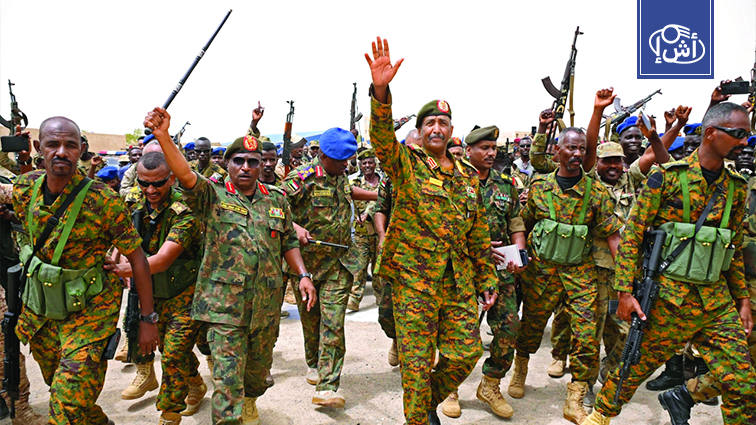The head of the Transitional Sovereignty Council in Sudan, Abdel Fattah Al-Burhan, warned of the continued security crisis in the country, stressing that the war will not end without “purging Sudan of the Rapid Support Forces.”
Al-Burhan stressed the existence of a large conspiracy targeting the Sudanese state, citing the siege imposed on weapons and ammunition, which poses a major challenge to the Sudanese National Army.
He also explained that the Rapid Support Forces are working to destabilize the country, noting the presence of ISIS members fighting within its ranks, and speaking about incidents of purchasing individual debts and international positions that negatively affect the security situation in Sudan.
Al-Burhan focused on the humanitarian dimensions of the crisis, praising the great popular support the army receives, which goes beyond civilian participation in the war to alleviating the burdens of the displaced.
The Sudanese Ministry of Foreign Affairs announced the attempts of the Rapid Support Forces to cause famine by preventing seed shipments from reaching farmers, which threatens the agricultural season and affects food security.
The United Nations has imposed an embargo on the sale of arms to Sudan since 2005, due to the use of weapons by the government under “Omar al-Bashir” against civilians in the Darfur region and other conflict areas.
The supply of weapons to Sudan is permitted with prior approval from the UN Security Council Sanctions Committee, and this approval is usually granted for peacekeeping operations and to meet Sudan’s basic security needs.
Libya hosts the African Under-23 wheelchair basketball qualifiers
